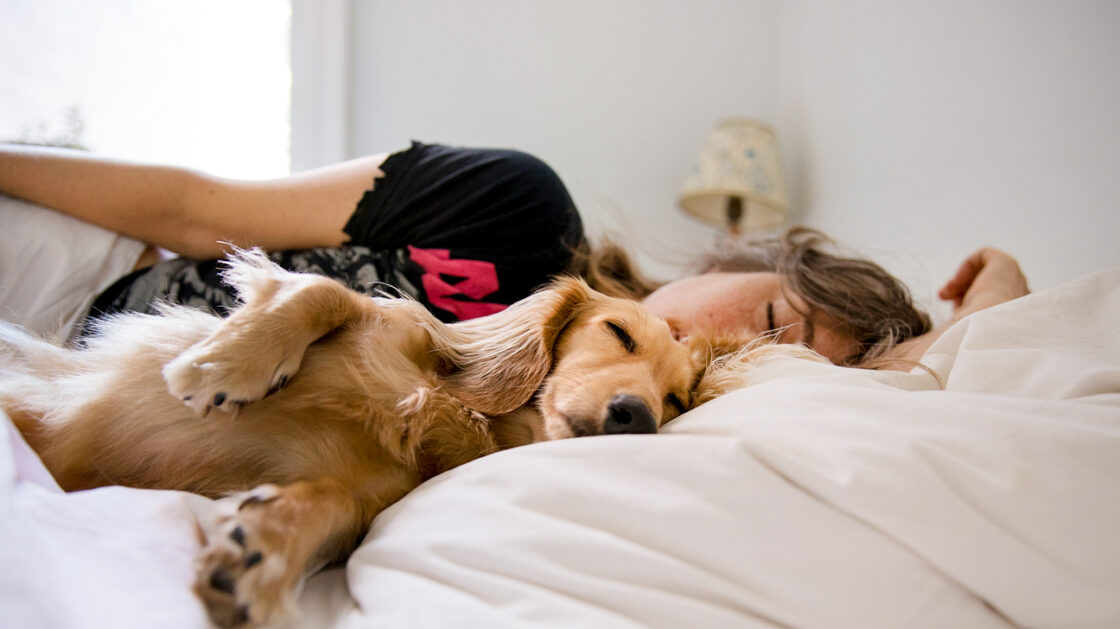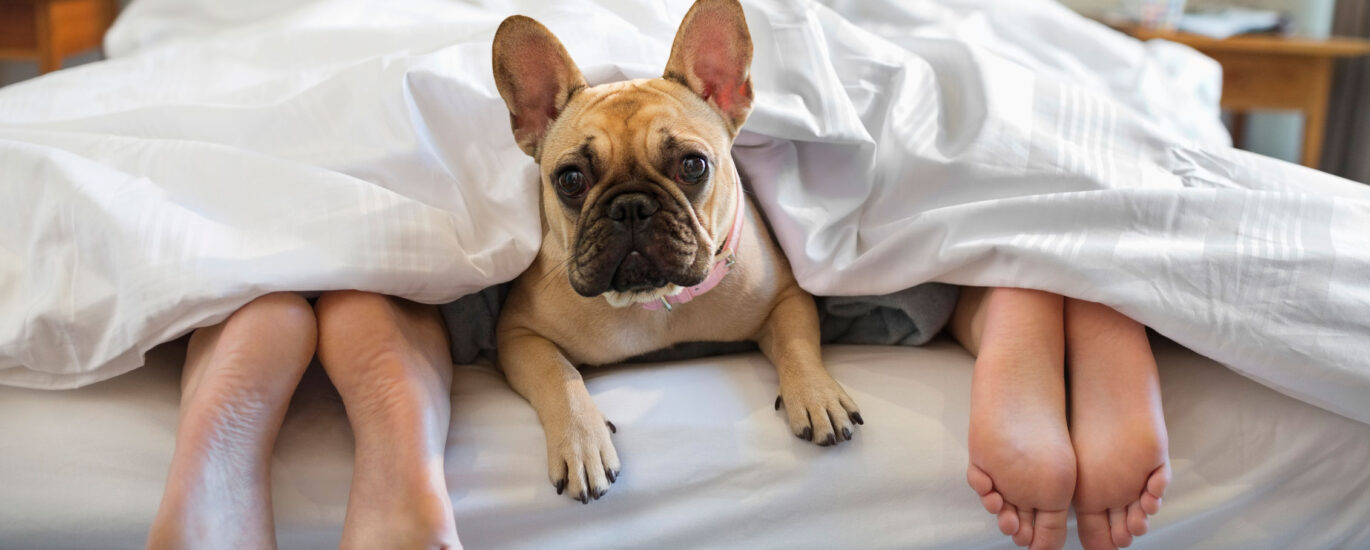Pet lovers want to please their pets and pamper them by feeding them goodies and sharing affection. The dog, becoming attached to the owner, reciprocates and also likes to be near him. Many “dog owners” like it when an animal sleeps together in one bed, although, of course, there are many who eschew the practice.
So is there a single correct option: to let the dog in the bed with you or not?
After all, on the one hand, it is pleasant both to the owner and the animal. But, on the other hand, the pet can interfere with sleep, and the person runs the risk of doing the pet no good. Therefore, it is worth considering arguments why taking a doggie to bed is not a good idea.
Reason 1: Sleep deprivation
Each dog has a unique character, its own daily routine, and preferences. Some animals are active at night, thereby disturbing their owner’s sleep. This is especially true of puppies, who may bark or whine in the middle of the night because they want to eat, go to the bathroom, or just got bored. As dogs age, they’ll sleep more soundly and wake up less often in the middle of the night, but unless they’re used to nighttime routines from infancy, it’s hard to retrain them.
Infrequent sleep disturbances themselves are natural and not dangerous to health. But if they become frequent and systematic, they can cause problems. These include restlessness, inability to fall asleep upon awakening, chronic sleep deprivation, and other difficulties. If you find it difficult to get enough sleep, you should stop the practice of co-sleeping early on by ensuring he sleeps somewhere far from the bed.
Reason 2: Longevity of your mattress
Did you know that sleeping with your dog can hurt the longevity of your mattress in a number of unique ways? Pet stains, pet odors, and sharp nails that have been known to scratch or tear a mattress are just a few of the things that can shorten your mattress’ lifespan.
Also, each mattress has a maximum weight limit per sleeper. Sleeping with your dog may exceed the weight limit of your mattress and lead to sagging. For this reason, you should always aim to have a durable mattress with a weight limit of 500+ pounds per sleeper.
And finally, older dogs may have problems with their bladders and that can cause accidents on your bed that are almost impossible to effectively clean out especially if you have a foam mattress. This is why please, invest in a waterproof mattress topper.
Reason 3: Allergies
Like any animal covered with fur, dogs are a source of hair, undercoat, and dander. And these, according to pulmonologists, are very often the cause of allergies and breathing problems. Even if severe symptoms don’t occur when you’re normally in the same room as your pet, close contact, such as sleeping in the same bed, can cause ill health.
Even if the owner is not at all prone to allergies, for reassurance it is better to use bedding made of thick fabric with zippers. It will prevent hair and dander particles from accumulating inside the pillow, blanket or mattress. Also, if you let your dog in the bed, it’s worth increasing the frequency of sanitizing the bed and linens. They should be washed and laundered at least once a week.
If the dog likes to play, she walks around the yard of the private house, and constantly finds dirt, it will be difficult to keep the bed clean. And if an animal of small size can still quickly wipe its paws with wipes, similar care for large breeds becomes problematic. So in these cases, it is best not to train the puppy to sleep in the same bed with the owner from the start.
Reason 4: Safety
Dog behaviorists, who recommend that you accustom the puppy to sleep in a place specially allocated for him, emphasize the issue of safety. After all, there is a risk that a sleeping puppy will fall off the bed by himself, be accidentally pushed or crushed by the owner, and get hurt.
Puppies and small dogs are at the greatest risk. A puppy or a small dog pinned by a fast-sleeping owner will have a much harder time getting out than a cat of comparable size. Most dogs have neither the flexibility of cats nor equally tenacious claws. So getting the puppy used to sleeping in his own bed, crate or kennel is important for his own safety.

Sleeping with your dog can be beneficial as well
If the dog is quiet, does not disturb the owner’s sleep, and is large enough not to be accidentally crushed (or you are a light sleeper and know for sure that this will not happen) – there are no contraindications to co-sleeping. If that closeness makes both you and your pet feel more comfortable, it’s okay to let him into your bed.
Many dog owners say that pets do not disturb their sleep at all. For some, especially lonely people, pets even help them fall asleep faster and more soundly. Therefore, in the absence of medical contraindications sleep with a dog or not – a personal matter. Weighing the pros and cons of both options, decide on the one that will be better in terms of comfort and for you and for the animal.






Recent Comments